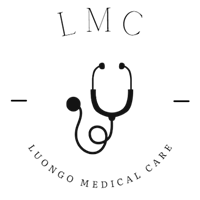SYMPTOMS of Diabetes:
Signs and symptoms of type 2 diabetes often develop slowly. Many, including you, or a loved one may be living with diabetes or pre-diabetes right now. Warning symptoms include:
- Increased thirst
- Frequent urination
- Increased hunger
- Unintended weight loss
- Fatigue
- Blurred vision
- Slow-healing sores
- Frequent infections
- Numbness or tingling in the hands or feet
- Areas of darkened skin, usually in the armpits and neck
Exactly how does diabetes develop?
- When insulin no longer has the ability to transfer sugar from inside the blood to the cells of the body, “insulin resistance” occurs.
- The pancreas is NOT ABLE to produce enough insulin to remove the blood sugar and transfer into the body.
BUT, less commonly with type 1 diabetes, the immune system mistakenly destroys the insulin producing cells in the pancreas.
Risk factors for developing diabetes
- #1 risk: Gaining weight / obesity.
- Inactivity. Physical activity helps control weight, uses glucose, and makes your cells more sensitive to insulin.
- Family history. Especially if one or both parents have diabetes.
- Race and ethnicity. Black, Hispanic, Native American, Asian and Pacific Islanders.
- Elevated cholesterol: An increased risk is associated with low levels of high-density lipoprotein (HDL) cholesterol (“good” cholesterol) & high triglycerides.
- Age. Diabetes risk increases especially after age 45.
- Prediabetes. When blood sugar level is high, but not high enough to be classified as diabetes. Prediabetes often progresses to type 2 diabetes, if not reversed.
- Gestational diabetes. Having had gestational diabetes, greatly increases risk.
- Polycystic ovary syndrome (PCOS). This common condition includes irregular menstrual periods, body hair, and obesity. (or difficulty with weight loss).
- Darkened skin, usually in the armpits and neck. Often indicates insulin resistance.
Complications of Diabetes
- Heart and blood vessel disease (heart attack and stroke).
- Nerve damage (neuropathy) in hands, feet , stomach, eyes and other organs.
- Kidney disease.
- Eye damage and vision loss.
- Slow healing of cuts and development of frequent leg and skin infections.
- Dementia.
- Sleep Apnea.
Conclusion
Diabetes combined with elevated blood pressure and high cholesterol places you at high risk for developing non-reversible heart disease and stroke.
While the first line of treatment for pre-diabetes and early diabetes is change of diet and exercise, a medication called metformin can help control appetite therefore making it easier to lose weight.
